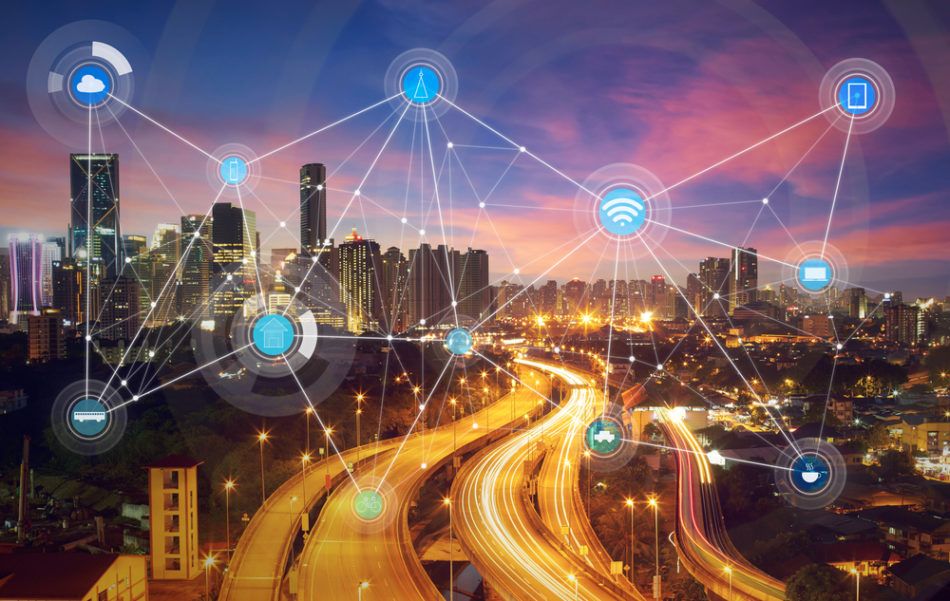Top 5 Challenges of Managing IoT Networks
Running a successful IoT network can provide numerous benefits and efficiencies for your enterprise, but also comes with a number of challenges. For...
Blockchain and artificial intelligence are both highly-touted emerging technologies, but for the enterprise, they might not intersect as well as you’d think.
Although it originated with the likes of Bitcoin, blockchain and cryptocurrency are not synonymous. Increasingly, blockchain’s distributed ledger technology is finding real use cases across a wide array of verticals — from healthcare to the supply chain and the enterprise. Now, executives are wondering if it can be paired with other emerging technologies like big data, IoT, and perhaps most prominently, artificial intelligence (AI).
Although it has yet to reach its full potential in the enterprise, AI is proving lucrative for big businesses. McKinsey estimates that AI will add as much as $13 trillion to the global economy by 2030. In the IT space, over 87 percent of companies that have implemented AIOps tools are seeing meaningful returns. For its part, Forbes predicts that 85 percent of customer interactions will be managed by AI by 2020.
If you believe the majority of industry forecasters, both blockchain and AI are poised to establish themselves as foundational technologies for enterprises. As a result, a number of analysts have suggested that AI and blockchain are an inherently complementary pair — even that the future of certain verticals will rest on the merging of the two. The arguments proceed that the duo will enable more efficient computation, greater access to data, stronger cybersecurity, more robust verification, and more.
But others have argued that these technologies are apples and oranges — inherently distinct capabilities that are neither designed nor able to foster some kind of exponential jump-step in technical capabilities. There’s some truth to both arguments, and given the attendant implications this discussion will have on CIOs and IT stakeholders, it should be prudent to clear the air on their behalf.
One of the main arguments made in this debate is that blockchains can offer the computational capacity that AI tools need. This argument is founded on the idea that centralized data servers were not built to support the widespread application of AI, which requires tons of computational power to chew through complex data sets. As a result, some argue that blockchain’s distributed computational capacity provides AI with better infrastructure.
The second most commonly-heard argument follows that blockchain can serve as a data resource for AI. Many tech experts will rightly tell you that AI would be nothing without data. The more information an AI has, the better it learns.
The spike in data generation over the past decade has sparked significant AI innovation. However, some argue that this data is being hoarded by large companies in the tech industry. Facebook, Google, IBM, and others all lord over large, proprietary silos of data — a situation that benefits each of these players to the detriment of smaller companies and AI as a whole. For this reason, many are calling for the “democratization of data,” a feat which some suggest can be accomplished with blockchain.
Lastly, many argue that blockchain technology could serve the crucial function of verification, an important step in the development of some AI. AI must be reliable and trustworthy if enterprises are to delegate tasks from human to machine. Accordingly, software analysts must use a verification and validation system to test their AI for vulnerabilities and false positives. With each and every change made to an AI marked and time stamped in an immutable ledger, the argument goes, verification could be made infinitely more reliable — and more efficient.
Although the above arguments all hold some degree of truth in certain contexts, there’s plenty of reason for pushback. For one, many believe it’s a fallacy that blockchains can magically improve computational resources. In reality, centralized computing is just as powerful, if not more so, than decentralized. Compute resources come at a cost no matter how they’re purchased — whether your sending USD to a cloud provider or Bitcoin to a few hundred thousand blockchain participants. AI use will be expensive with or without the help of blockchain.
Secondly, to say that blockchains can “provide” data for AI isn’t entirely accurate. It’s true that a blockchain platform could be used to crowdsource data which could then be fed into an AI or ML algorithm, however, this setup introduces the further complication that paying for data often comes with implications for that data’s quality. AI stakeholders hoping to use blockchain technology to gather large amounts of data might do better to leverage other platforms.
Moreover, forcing big businesses to adopt blockchain into their data operations won’t magically make big data public — enterprise blockchains don’t operate in the same way that public blockchains do. In fact, they’re designed for maximum security. While anyone can view transaction records on a block, the data itself is highly encrypted (one of blockchain’s many unique benefits).
What’s more, although, blockchain might be useful for verification when it comes to academic and public research, this is far from AI’s most important domain. Experimental research is not the most important use case for AI, especially not when it comes to implementing practical enterprise solutions.
Perhaps most importantly, blockchain and AI are, quite simply, different types of technologies. They do entirely different things and in the real world, enterprises aren’t currently actively pairing them together to improve efficiencies. The reason they’ve been mixed together in the common parlance is likely due to the fact that they’re both buzzwords, and both have “grown up” at roughly the same moment in history. Recent efforts to conflate the two have been geared more toward excited on-lookers than those who’re actually building solutions.
There is no doubt that both AI and blockchain will play larger and larger roles in enterprise operations moving forward. Both, however, require substantial computing resources; they’re data-intensive, and carry significant cybersecurity implications. Enterprises are going to need solutions to address these concerns if and when they choose to adopt either technology into their core operations. That’s where Turn-key Technologies comes in.
Although some enterprises have the internal IT capacity to handle new tech implementations themselves, many will find that they need additional support and expertise to get the job done. By working with an expert networking specialist like Turn-key Technologies (TTI), you can be sure your enterprise is prepared to make the most of what the future has to offer.

Running a successful IoT network can provide numerous benefits and efficiencies for your enterprise, but also comes with a number of challenges. For...

For the past several years, everyone has been talking about the power of blockchain and the potential of cryptocurrency. But what do those terms...

Internet of Things devices have the potential to revolutionize nearly every industry, but not before device manufacturers sort out some persistent...